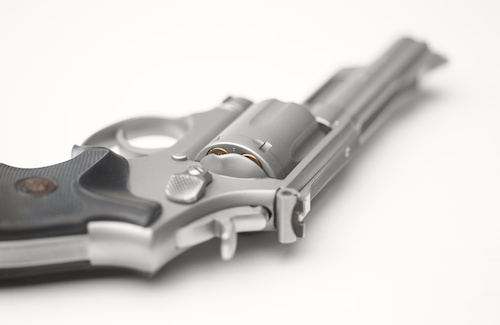In 2015, Time magazine reported that there had been 23 shootings on college and university campuses that year, including an attack at a community college in Oregon that claimed 10 lives.
Prompted by such headlines, lawmakers have started taking a closer look at policies regulating weapons on campus. But states’ reactions have varied according to local attitudes towards guns and lawmakers’ party affiliations. And it’s unclear whether laws regulating firearms on campus will have any real effect on campus crime.
In some states, shooting incidents or fear of shooting incidents have caused lawmakers to seek to expand existing gun regulations. In 2013, for example, five states introduced legislation to prohibit concealed carry weapons on campus. (None of the bills passed.)
In the same year—moving in the opposite direction—19 states introduced legislation to allow concealed carry on public college campuses. Two of the bills passed. In 2014, legislators in another 14 states introduced similar legislation. (No bills passed.) In 2015, Texas became the eighth state to allow concealed carry weapons on college campuses. And this year, North Carolina’s legislature has introduced a bill to allow for the same on public university and community college campuses.
Opponents of concealed carry on campus claim that it will lead to an escalation of violent crime and suicides by students. They also fear that guns on campus will detract from the learning environment and possibly stifle campus discussion and unpopular ideas. Others point out that legal gun owners on campus will be difficult to distinguish from active shooters, and that campus defense should be left to the police.
They also credit existing “gun-free” policies for making colleges and universities relatively safe. From 2012 through 2014, for example, just 24 cases of murder or non-negligent manslaughter occurred on public university campuses nationwide.
Time’s 2015 list of campus shootings provides further evidence of the safety of college campuses. The list is provided by Everytown for Gun Safety, which has tracked all school shootings since 2012. The group defines a school shooting as any incident in which a firearm is discharged inside a school building or on campus grounds and not in self-defense. The 23 shootings on the list resulted in only 21 deaths and 23 injuries—across all public and private colleges and universities in the country. The list even includes one incident in which a man “accidentally shot himself.”
Proponents of concealed carry concede that college campuses are safe places. But they believe that some gun owners likely carry on campus despite laws prohibiting the practice (suggesting that concealed weapons may be having a positive effect). They also point out that concealed handgun license holders are five times less likely than non-license holders to commit violent crimes. Moreover, the eleven U.S. colleges and universities that currently allow concealed carry on campus have not seen any resulting incidents of gun violence, gun accidents, or gun thefts.
In Colorado, for example, concealed carry has been legal since 2012 when the Colorado Supreme Court ruled that the University of Colorado’s longstanding policy banning guns from campus violated the state’s concealed carry law. In the three years following that decision for which data are available (2012-2014), there were no murders on public university campuses in the state.
As mentioned above, North Carolina is taking steps toward relaxing its campus gun policies. In 2013, the state legislature passed a bill allowing a person with a valid concealed carry handgun permit to possess a handgun on educational property, provided that the weapon is in a locked container attached to a vehicle, such as a glovebox.
Chiefs of police at all 17 UNC system schools opposed the provision, saying they feared car break-ins and increased gun violence on campus.
Student Government Associations at 11 of the 17 schools opposed the law as well. In a proclamation signed by student body presidents, students predicted that “more guns on campus would create an additional risk for students.” So far, however, there has been no reported increase in incidents of violence on UNC campuses.
Nevertheless, the latest bill, which would allow concealed carry across all public campuses, not just within vehicles, is likely to receive strong pushback from some campus leaders and student communities.
Recent research by the Campaign to Keep Guns Off Campus, established in 2008 and joined by the American Association of State Colleges and Universities, was intended to debunk the claims of concealed carry proponents that guns on campus could deter crime.
The author concludes: “[While] the results certainly do not prove that campus carry causes more crime, [they] undoubtedly disprove the claim that the possible presence of individuals carrying concealed weapons equals less crime.”
However, the report shows—like other evidence—that there is no relationship between campus carry laws and rates of violent crime on campus.
Without evidence that campus gun laws have any effect on the crime rate, lawmakers should defer to the Second Amendment. Students’ and faculty members’ rights to gun ownership should not be abridged by arbitrary and baseless campus regulations.

